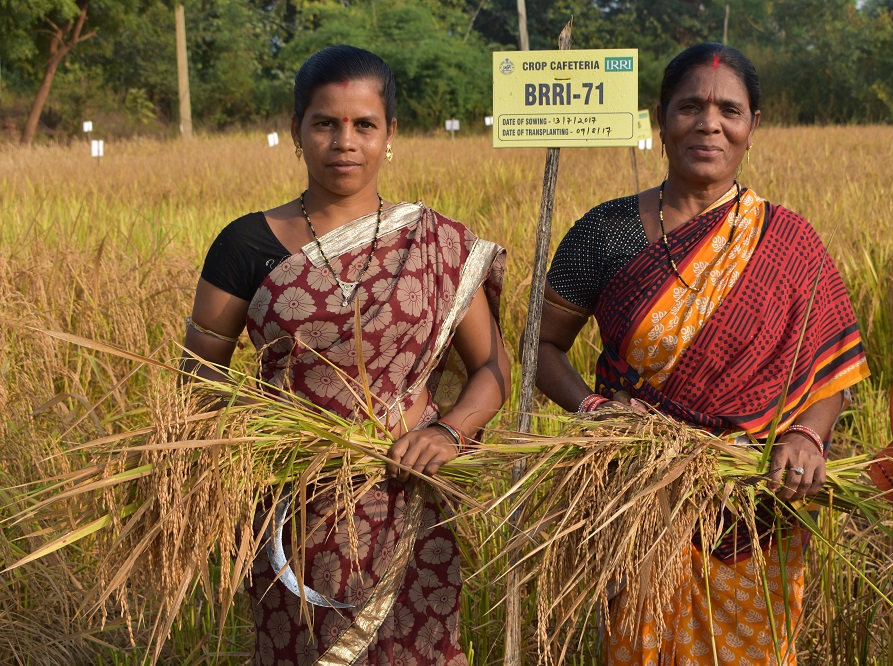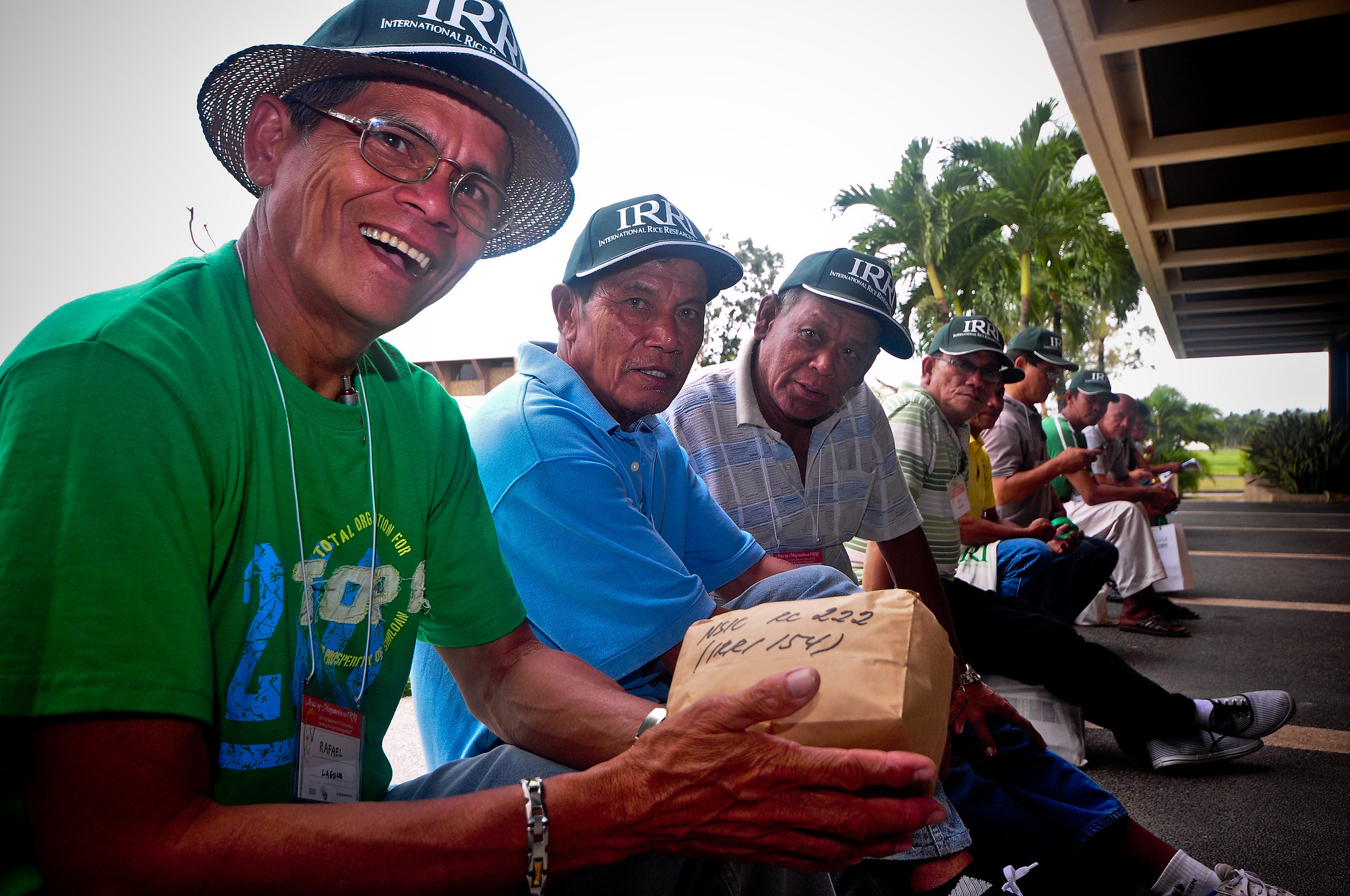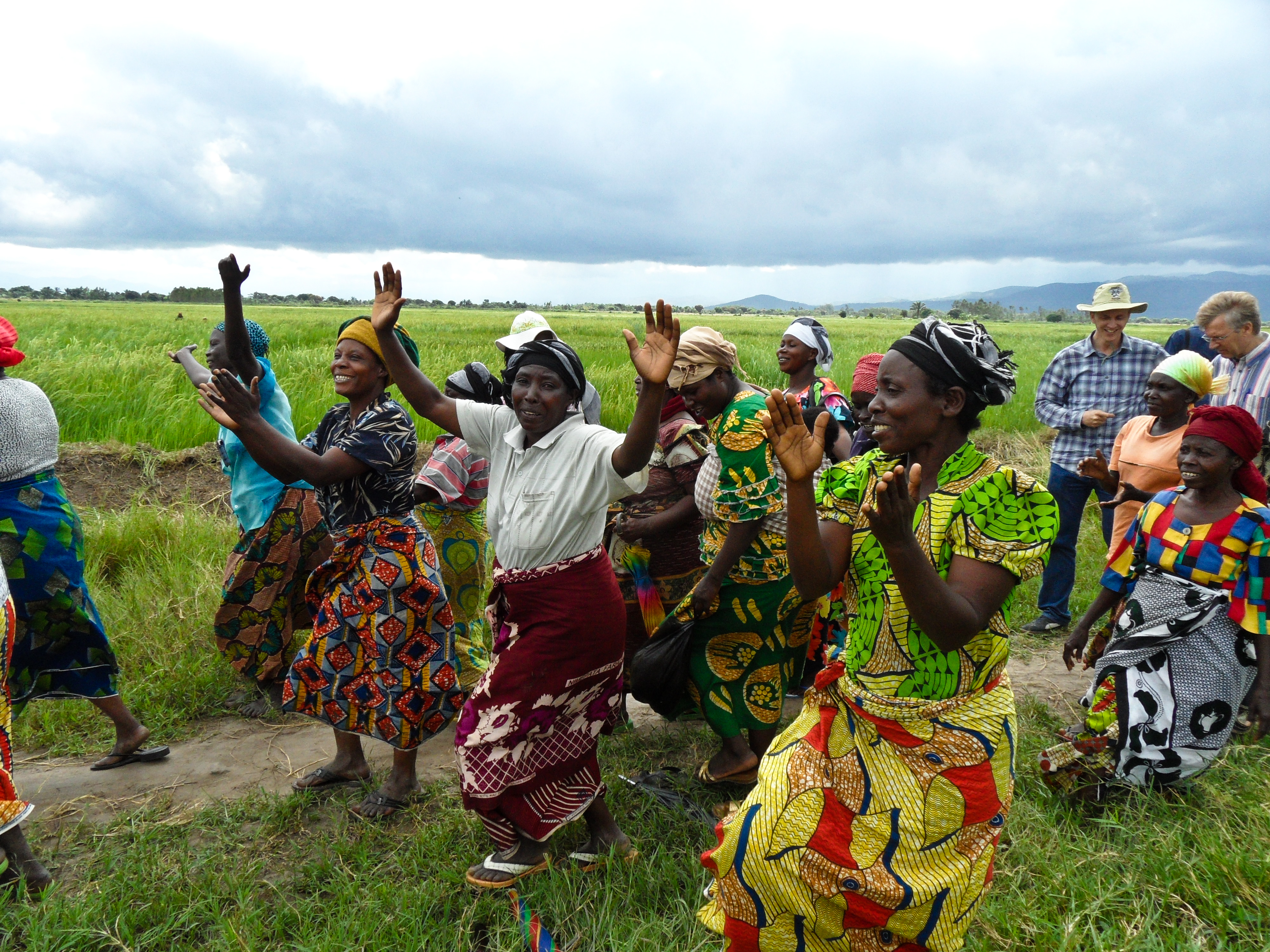“The objective is to improve IRRI’s impact profile. The idea is to move away from a project-by-project approach and provide accurate information about IRRI’s overall impact in a given country more systematically. Projects are part of a much broader endeavor that has to do with what IRRI is trying to achieve and projects serve this purpose. It is the sum of these coherently implemented projects that needs to become increasingly impactful.”
Jean Balié
Lead, Agri-Food Policy Platform
Jean Balié (in photo) believes agriculture is one of the most important sectors in the developing world to address the big challenges of our times around food security, poverty, climate change, and biodiversity. He looks forward to strengthening IRRI’s role in effectively and sustainably transforming agri-food systems to improve the lives of those who depend through science and policy-oriented research.
As the head of the Agri-Food Policy Platform at the International Rice Research Institute (IRRI), Dr. Balié oversees the institute’s work in four main areas: market and value chain analysis, foresight for marketing policy analysis, monitoring evaluation and learning, and spatial analysis for agri-food system transformation.
With a 20-year career in developing policies for agriculture, food, and rural development, Dr. Balié’s experience makes him a great addition to the organization where he is tasked with promoting strong relationships among the institute’s scientists and its current partner organizations. At the same time, he will build new alliances with potential partners and investors.
In his presentation to IRRI’s Board of Trustees in April 2019, Dr. Balié highlighted the progress, achievements, and the future plans of the platform.
Take the work of IRRI from science to impact
We are trying to take the work of IRRI to the next step, in terms of influencing policies, to increase our impact. The role of the Agri-Food Policy Platform is to look within the institute and identify all potential areas where there is a policy dimension that we want to tap and bring to the surface. We also try to convey this message to key clients, primarily governments. The intention is to take all the work of IRRI from science to impact and make sure we target people in countries. That is really the scope of the platform’s work.
Policy engagement is the way to interact with our key partners
Policy engagement has to be understood as the way we want to interact with our key partners in government or country-level stakeholders. IRRI operates in a very competitive environment to attract the interest of policymakers and investors. However, IRRI is uniquely placed and enjoys a clear competitive advantage in achieving an effective country-engagement. This is because IRRI can deploy three sources of knowledge and experience across countries.
First, IRRI is a huge repository of knowledge. For example, I want to engage in Africa about seed systems, I can collaborate with our colleagues from the Breeding Platform. Likewise, for water management, I can engage with our experts from the Sustainable Impact Platform or with the GIS Unit in predicting harvest after disasters in difficult areas.
Second, IRRI can mobilize this knowledge and combine it with IRRI’s country presence and the knowledge we have about local realities through IRRI’s regional and country representatives. We want to embody our knowledge of what is going on in a country in the design and implementation of our policy support. This country knowledge will help us to identify the right entry points for engaging policymakers, key influences, and stakeholders.
Third, the Agri-Food Policy Platform can bring knowledge on how to conduct policy work effectively to achieve impact. The platform provides support to all IRRI’s scientist to engage in relevant policy issues. It proactively engages with scientists to attract the attention of policymakers on key research results. To increase the effectiveness of IRRI’s policy support, the Platform helps scientists to understand and integrate political economy factors in their outreach strategy but also to adopt the right language and shape powerful policy messages when interacting with policymakers.
This is the recipe for impact. There are not so many organizations that can combine these three key spheres as effectively as IRRI.
IRRI is also the first commodity-specific center that has a platform that is entirely dedicated to policy influence. We go well beyond the Ministry of Agriculture to try to also influence the people who are setting the agenda at the country level and, increasingly, we work with strategic partners in the private sector.
Focus on an inclusive sustainable and efficient rice value chain
A large part of our policy research increasingly focuses on inclusive, sustainable, and efficient value chain in three key areas of work.
First, we are strengthening the policy environment for the rice value chain making sure that the policies are in place and are not hindering the performances of the rice sector and a number of co-products such as rice straw and others that could add value.
Second, we are focusing on people by making the rice market and trade work for the poor and the food insecure. One key work stream is about understanding consumers’ demand and quality preferences of rice-based products. This is where we try to capture the willingness of consumers to pay for specific attributes, quality, and sustainability. Product profiling is the outcome of this research and this is one of the services that we want to render to our colleagues in the breeding Platform. We want to make sure that we have this dialogue with them about market demands.
Third, we investigate the role of the rice-based agri-food sector in the process of structural transformation of the economy in different landscapes. Conversely, we also analyze the heterogeneous effects of this transformation on the rice-based agri-food across spaces. In both cases, the objective is to identify and formulate policy options to adapt to these changes. For example, our spatial analysis helps identify innovating insurance mechanisms and other safety nets for farmers by mapping and characterizing rice production.
We are after helping farmers become richer and consumers become healthier
The spatial analysis of rice-based agri-food system is strategic. We want to know where rice is likely to have the potential to remain the backbone of a vibrant agri-food system in the future and where it makes sense to phase out rice crop. We are not after maintaining rice in all locations as that would mean ignoring the inevitable process of agriculture transformation and economic development. We are after helping farmers become richer by using the most suitable farming strategies. Therefore, it is also IRRI’s role to identify areas where we can really push and promote rice for good reasons and try to help governments decide where they should accelerate transformation and diversification.
We help governments and other stakeholders to anticipate the possible futures for the rice economy
Our platform is building a strong economic and policy foresight group to produce periodic foresight analyses and reports for better decision-making in the rice-based agri-food sector. These policy-oriented products provide insights into the futures of the rice markets, rice-based economies, and policies. With our analyses and policy-notes, we target policymakers or strategic public and private-sector partners such as traders. We also intend to provide critical inputs to the work program of other units within IRRI such as sustainable impact, breeding, and strategic innovations.
We want to show IRRI’s impact on people’ lives and the planet across countries
Another area that is very strategic for the institute is impact evaluation and learning. How can we capture more of IRRI’s impact and provide evidence where it matters? We have designed an Institute-Wide Impact Oriented Monitoring, Evaluation and Learning (IOMEL) system that is very ambitious. IOMEL was recently adopted and is gradually unfolding to capture the richness and diversity of IRRI’s interventions and their impacts.
The objective is to improve IRRI’s impact profile. The idea is to move away from a project-by-project approach and provide accurate information about IRRI’s overall impact in a given country more systematically. Projects are part of a much broader endeavor that has to do with what IRRI is trying to achieve and projects serve this purpose. It is the sum of these coherently implemented projects that needs to become increasingly impactful. It will be a long process that has to do with changing our M&E culture, revisiting the architecture of our projects, and exploring smarter ways to combine our projects to make to maximize our overall impact.











